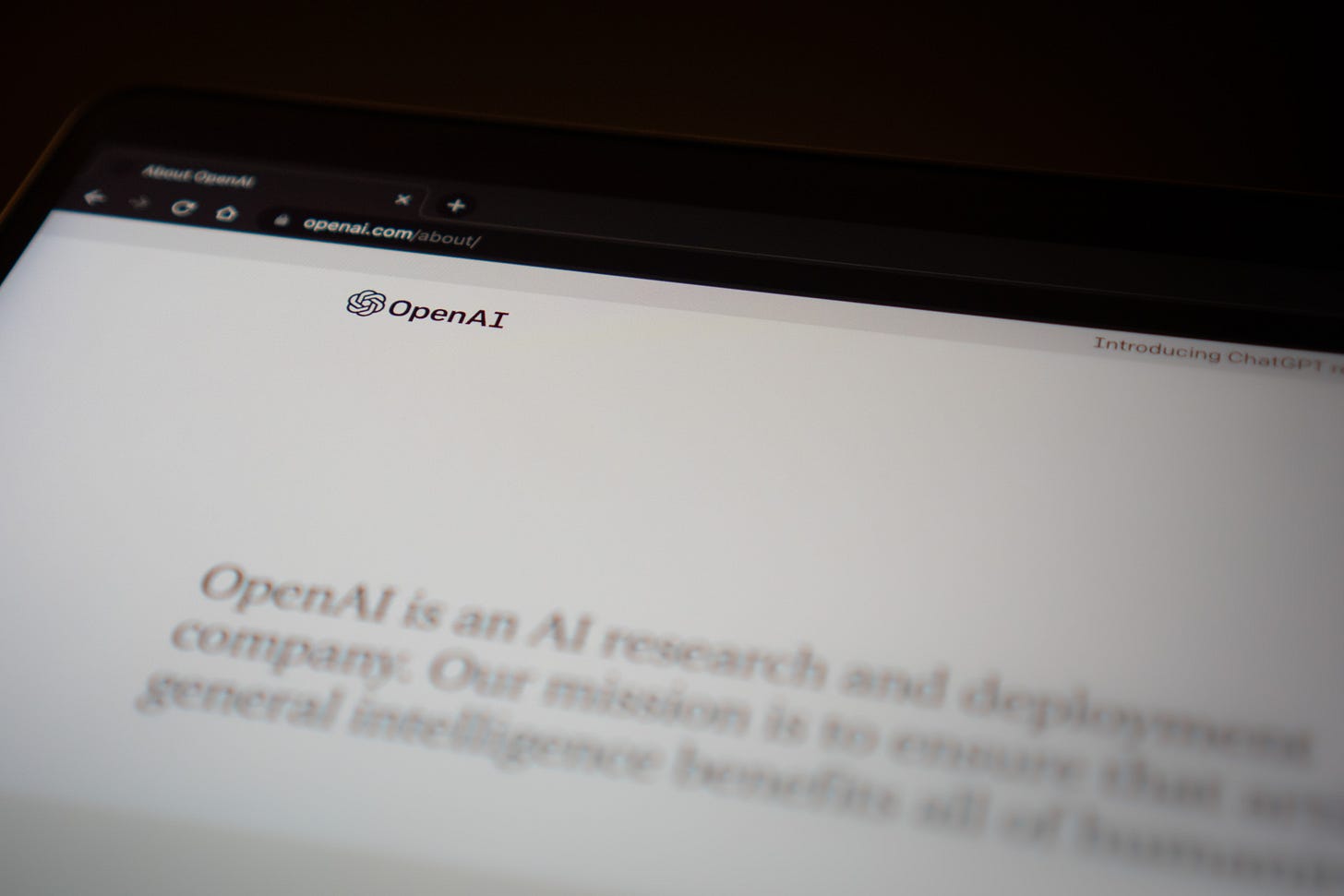Preventive decisions are underrated
Lessons from OpenAI, Starbucks and the TSA on the value of preventing issues.
I’m experimenting with recording an audio version of this newsletter, for those who prefer to listen to ideas. Let me know what you think!
Is this an episode of Silicon Valley?
In one of the most weird business stories of the year, OpenAI’s board fired its CEO, Sam Altman, only to rehire him and then fired themselves.
It’s like a scene straight out of the HBO series, Silicon Valley.
There’s plenty of wild theories on the internet, many of them flirting with the conspiracy world, but we will likely have to wait for the 8-episode HBO TV series starring Michael Cera as Sam, for the entire truth.
The WSJ has a great, mostly factual, summary of the twists and turns.
In the meantime, the story highlights a key lesson for leaders: you need to maintain positive relationships with your board.
Here are three questions for you to ponder. If you don’t work with a board directly, simply replace the word “board” with “team.”
1. Who’s on your side on important strategic decisions?
2. What’s your plan to deal with board replacements? (Sam Altman failed to do this)
3. What are the issues your board is concerned about and what are you doing about them?
Board relationships are an inherently political process that you cannot ignore.
Sam Altman may blame effective altruism, ideology or greed but at the end of the day, it was his responsibility to ensure the board was on his side.
Question: What action can you take this week to improve the relationship with your board?
Even the TSA needs a break
The Transportation Security Administration (TSA) expects 30 million passengers between Friday Nov. 17 and Tuesday Nov. 28, the bulk of them flying back home for Thanksgiving.
Sunday Nov. 26 was expected to be the busiest air travel day in U.S. history. If you found yourself at the airport on this day, I sincerely hope everything went well.
Perhaps you’re taking the last few weeks off of the year to spend more time with your family or you’re planning on going somewhere warm and picturesque. Regardless of what you’re doing, take the time off period seriously.
2024 can be a fantastic year for your organization and for you personally, but you need to approach it calmly and optimistically. A couple of weeks R&R is the key.
Question: What can you put into your calendar this week to help you maximize your time off?
Playing offense with labor
A small minority of Starbucks employees went on strike last week, continuing a 2-year battle the company has been waging against unions.
You might not be running a 400,000+ workforce of baristas but there’s plenty of lessons to be learned.
It all comes down to playing offense with your labor.
It’s not enough to simply pay people competitive rates.
Here are 10 ideas that can help you improve your labor relationships. Make them your own.
Creating an independent grievance process
More benefits around education, childcare and mental health
Higher autonomy in work
Regular appreciation of contributions (an underrated action by managers)
Impact into decision-making through voting and surveys
Stock options for “skin-in-the-game” (Tesla, who isn’t unionized, loves this)
Profit sharing
Deliberate career planning help
Work-from-home flexibility
Investment in employee facilities and equipment
There’s no guarantee that if you take most of these actions—Starbucks has an incredibly generous benefits program—you will not face labor issues, but you’re reducing the probabilities in the future.
In a world of low unemployment (U.S. is at 3.9%), an aging workforce, and an expected ongoing worker shortage, all organizations need to be their own union, advocating for workers.
Question: How can you improve your relationship with labor this week?
This week’s newsletter is a reminder that it is always better to prevent a fire rather than deal with the damage in the aftermath.
See you next Tuesday!
Ruben



The ideas that didn't make the editing rounds but are still useful for those who want to dive deeper:
OpenAI:
-Some people are incredibly worried about AI taking over humanity but first, it will have to survive human politics.
-A quote from a relevant book on the topic, The Myth of Artificial Intelligence:
"First, intelligence is situational—there is no such thing as general intelligence. Your brain is one piece in a broader system which includes your body, your environment, other humans, and culture as a whole. Second, it is contextual—far from existing in a vacuum, any individual intelligence will always be both defined and limited by its environment. (And currently, the environment, not the brain, is acting as the bottleneck to intelligence.) Third, human intelligence is largely externalized, contained not in your brain but in your civilization. Think of individuals as tools, whose brains are modules in a cognitive system much larger than themselves—a system that is self-improving and has been for a long time."
TSA:
-Trying to cram more things into a single day is a legacy from the Industrial Revolution. Knowledge work is about insights, which could take minutes or hours.
-If thinking is the most important part of your job, then you need to do everything possible to maximize it, such as sleeping and eating well.
-Laying on the couch doing nothing is most likely not the best way to rest but you'll need to experiment.
Labor:
-A great book on the benefits of unions is What Do Unions Do? By Richard B. Freeman and James L. Medoff. It looks at the evidence up to the 1980s.
-I personally fall on the side against unions, especially in developed nations such as the United States. Instead, organizations should be their own union.
-To understand the conditions that created unions, the fiction book The Jungle by Upton Sinclair is fantastic. Reading the book also makes it clear why unions don't make sense today.